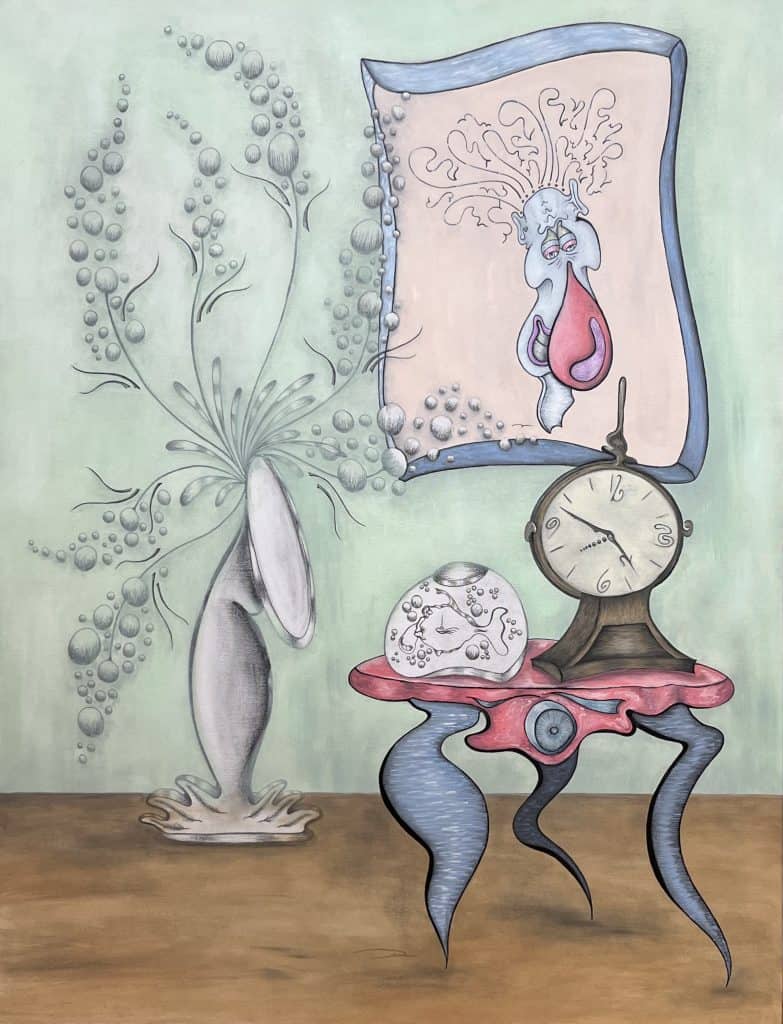Portraits Of Gen X Xenophobes: An Interview With Artist Gene Stout

Image of The Wake of X4 by Gene Stout
Sell to a Gen X? Be Straightforward and Show Some Love

Photo by 愚木混株 cdd20 on Unsplash You want Gen X customers or clients? Take the time to understand them. To reach them, adopt two strategies: authenticity and acknowledgment. If you betray a Gen X – or fail to value Gen X patronage – a Gen Xer will turn his or her back on you, badmouth you, or pretend you don’t exist. After a Gen X experiences even the suspicion you are playing games or the hint that you don’t really care or understand, rekindling a relationship is impossible. They will, in plaid flannel and torn jeans, walk away with both middle fingers held high. Because of parental and societal treatment, Gen X, those born between 1965 and 1980, trust no one and feel forever negated. For this article, for example, I searched for images to face pictures of knee surgeries, Millennials, and Boomers. Lots of grey-haired grandparents. Models in skinny jeans. A Model T Ford. No. Wow. Members bond over these shared experiences. Authentic marketing is one key to reaching Gen Xers. You must earn trust – and continue to be honest in your product, service, offers, and customer care, to keep that trust. Add to your authentic communication indices of personalization. Recognize each Gen X customer or client as an individual – be interested in them, recognize their loyalty, notice their preferences – and you will make and continue to make the sale. Experts recognize Gen X children were abandoned (no one home, no one cared, left to their own devices) or rejected (never good enough, not right, not special, not worth it). And that treatment continues as Gen X is the ignored or forgotten generation, rejected, and abandoned as the media agenda focuses on Boomers and Millennials. Perhaps this treatment results from Gen X having less members than other generations. Gen X numbers only about 65 million people. Liberal abortion policies and birth control methods, shifting to better healthcare, resulted in Gen X having fewer members than previous – and post – generations. Experts also mark Gen X along a shorter, 16 year timeframe while most generations span 20 years. Whatever the reason, Gen Xers are not happy about it. The latchkey generation, whose Boomer and Lost Gen parents did not spare the rod or spoil the child, Gen Xers suffered unreported child abuse in a society that believed parents had the right to discipline in any way they wanted. Discipline ranged from spankings to worse – and included denial of food, imprisonment, denial of healthcare, or eviction. Over the past ten years as a personal coach, 75% of my 53 Gen X clients have disclosed experiencing physical or sexual abuse. (Yes, those seeking coaching may be more likely to be seeking help – but the percentage is still disconcerting.) At school, not only would teachers and administrators ignore or avoid issues of parental abuse and neglect, but also would characterize Gen X students along Breakfast Club lines. As character Brian Johnson says: “You see us as you want to see us, in the simplest terms with the most convenient definitions. But what we found out is that each one of us is a brain, and an athlete, and a basket case, a princess, and a criminal. Does that answer your question? Sincerely yours, the Breakfast Club.” That is the Gen X experience. They have been generalizations and characterizations as diametric opposites: dumb/smart, pretty/ugly, athletic/spaz. Worse, pedagogists of the time had only started to identify learning disabilities and autistic characteristics. No matter the intelligence, they labeled autistic Gen Xers troublemakers and discipline problems. They forced those with dyslexia into the “special” class. And no one – no one – was interested in assessing a Gen X child for mental illness. Gen X was the first to live with high divorce rates and single-parent households – and the first modern generation where both parents had to work to support a household. Alone, Gen X drowned in danger. Boomer generation parents held to the self-reliance and privacy precepts – even if you are suffering abuse. Shut up (go to your room, this conversation is for adults, don’t ask questions) and deal (take care of your siblings, you forgot your homework paper too bad, we don’t have the money for your hobbies) was the message for Gen Xers. Sex was something our free-love, hippy parents enjoyed, but was to be feared during the AIDS epidemic. Cold War tensions between the Soviet Union and the United States kept Gen Xers wondering when the bomb was coming. Gen Xers remember the gas station lines during the energy crisis – and the parental conversations when daddy was laid off, again (Gen Xers have lived through three recessions: the Dot-com bubble, the financial crisis, and the pandemic.) Financially conservative (fearful) parents and grandparents who had survived the Great Depression, along with the threat of zombies, Skynet, or alien invasion, kept Gen Xers constantly on edge. High ACE scores (adverse childhood experience measurements) resulted in Gen X having worse health than prior generations. With higher instances of alcohol and drug abuse, they also suffer more anxiety and depression. Even with their focus on and opportunities for exercise, better nutrition, and even bio hacking, Gen Xers suffer with obesity, chronic inflammation, and elevated blood pressure and cholesterol (what experts call physiological dysregulation). Gen X also is the first generation in history to not do better economically than their parents. Many Gen X have filed bankruptcy, lost their homes – and almost 40% have more debt than savings! We cringe at every commercial on cable and paid television: I subscribed to avoid commercials! Why am I still paying? College costs skyrocketed for Gen Xers. Where mom and dad paid out of pocket for higher education, Gen X was burdened with mortgage-sized college loans. Speaking of mortgages: Boomers purchased a first home for what Gen X paid for their first clunker cars. Many Gen Xers entered the job market during or after the recession – forcing Gen X
Apocalypse Fail: My End of the World Disappointment

GenXers waited our entire lives for The Apocalypse. For me the COVID-19 quarantine did not bring the excitement I had forever-envisioned.
Frosty Crap Jacks

Why don’t health cereals contain toy surprises? When I was a kid, my siblings and I would battle each other – and our parents – for those toy surprises.
Cures for Stress

A stable orbit desired.
Epimetheus and Janus

A stable orbit desired.